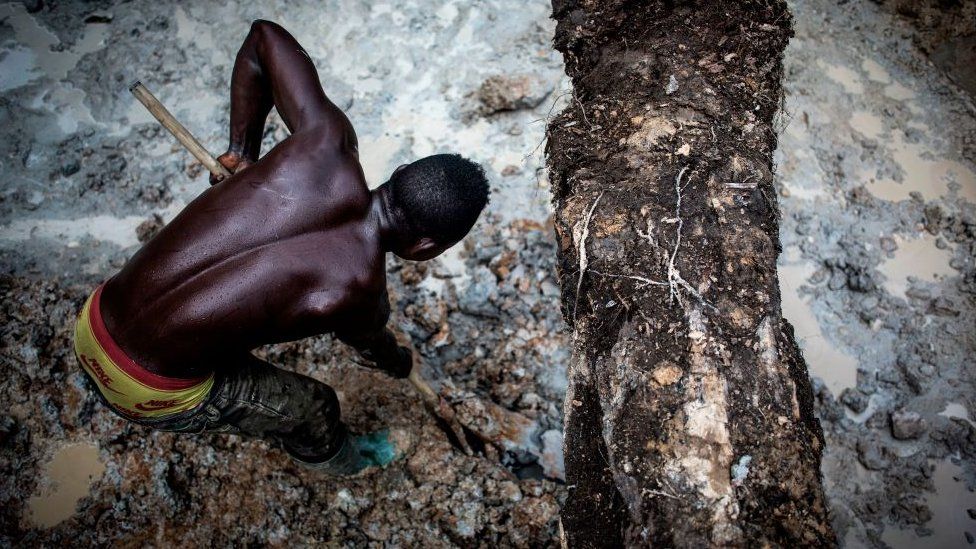Top tech firms sued over DR Congo cobalt mining deaths
- Published

Apple, Google, Tesla and Microsoft are among firms named in a lawsuit seeking damages over deaths and injuries of child miners in the Democratic Republic of Congo.
The case has been filed by the International Rights Advocates on behalf of 14 Congolese families.
They accuse the companies of knowing that cobalt used in their products could be linked to child labour.
DR Congo produces 60% of the world's supply of cobalt.
The mineral is used to produce lithium-ion batteries used to power electric cars, laptops and smartphones.
However, the extraction process has been beset with concerns of illegal mining, human rights abuses and corruption.
The lawsuit filed in the US argues that the tech companies had "specific knowledge" that the cobalt sourced for their products could be linked to child labour.
They say the companies failed to regulate their supply chains and instead profited from exploitation.
Other companies listed in the lawsuit are computer manufacturer Dell and two mining companies, Zhejiang Huayou Cobalt and Glencore, who own the minefields where the Congolese families allege their children worked.
Glencore said in a statement to the UK's Telegraph newspaper that it "does not purchase, process or trade any artisanally mined ore" adding that it also "does not tolerate any form of child, forced, or compulsory labour."
The BBC has sought comment from Zhejiang Huayou Cobalt.
Why are people in mineral-rich DR Congo among the world's poorest?
The court papers, seen by the UK's Guardian newspaper, give several examples of child miners buried alive or suffering from injuries after tunnel collapse.
The 14 Congolese families want the companies to compensate them for forced labour, emotional distress and negligent supervision.
In a response to the Telegraph, Microsoft said it was committed to responsible sourcing of minerals and that it investigates any violations by its suppliers and takes action.
A spokesperson for Google told the BBC that the company was "committed to sourcing all materials ethically and eliminating child mining in global supply chains".
An Apple spokesperson said the company was "deeply committed to the responsible sourcing of materials" and "if a refiner is unable or unwilling to meet our standards, they will be removed from our supply chain. We've removed six cobalt refiners in 2019".
The BBC has also sought comment from Tesla.
Update 18 December: This article has been amended to include the comments from Google and Apple.
- Published24 November 2019
- Published26 July 2018
- Published13 June 2017
- Published19 January 2016
- Published13 November 2019